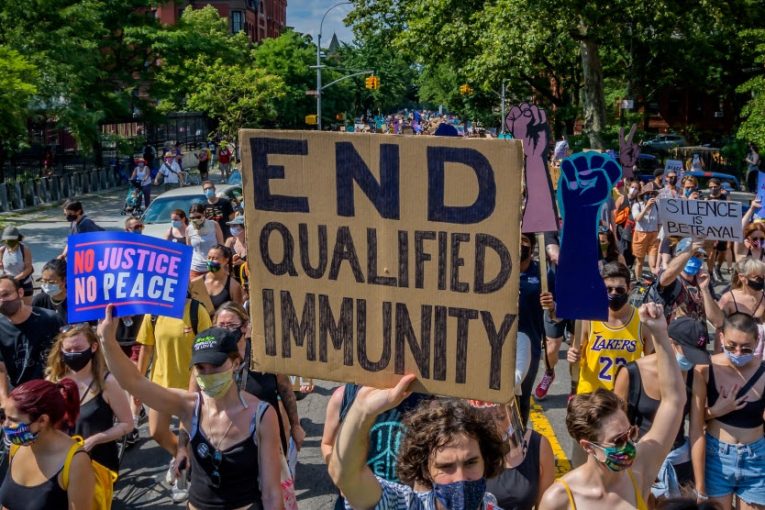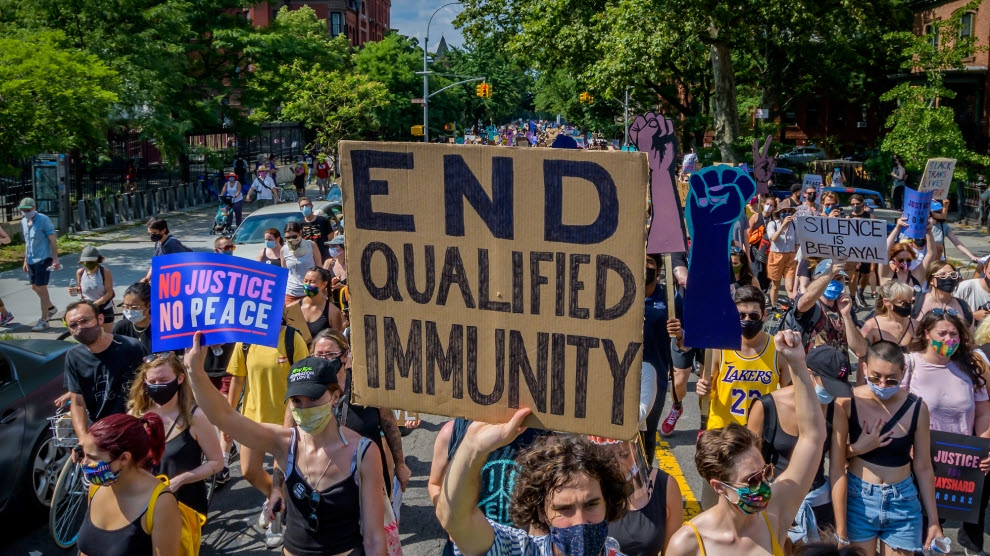

By Julian Verdon
CLEVELAND – The NAACP and civil rights attorney James Hardiman filed a petition to the United States Supreme Court this last week, claiming that the Sixth Circuit Court of Appeals decided incorrectly that a police officer had qualified immunity protections when tackling and arresting Shase Howse, a Black man.
On a July evening, when Howse arrived at his house, a car pulled up, and a man in the passenger seat asked if he lived there. Howse confirmed that he did, and the car pulled away but then turned around.
The man then demanded again if Howse lived there. Howse, a little irritated, responded that he did, along with an expletive. The man in the car had not identified himself yet as law enforcement.
The plainclothes officer stepped out of the vehicle and remarked, “You have a smart mouth and a bad attitude.”
Two other men also stepped out of the vehicle while the first man kept referencing Howse’s “smart mouth” and repeated for the third time, “are you sure you live here?”
Howse responded that he did indeed live there. Before he knew it, the officer tackled him to the ground. Howse claims he did not know the man was an officer until he was on top of him yelling.
Howse’s mother came home as the officer pinned her son to the ground. When her son heard her voice and lifted his head, the officer then struck his neck, which forced his head to hit the porch. Afterward, the officer placed Howse in handcuffs and took him to Cleveland City Jail.
Howse initially believed that the state would drop the charges against him once someone realized he was merely arrested for trying to enter his own home.
“Instead, a grand jury indicted Mr. Howse for two counts of assault on a police officer, and one charge of obstructing official business,” stated the petition. The obstruction charge stemmed from the officer’s filed complaint against Howse.
The NAACP and Howse’s attorney argues that Howse did not violate any law and that the officer used excessive force. The officer tackled Howse, punched him in the neck, and then arrested him without a warrant or probable cause.
“At summary judgment, Petitioner Shase Howse presented evidence that Mr. Howse was entering his home, a plainclothes police officer approached him, told him he was going to jail, and threw him to the ground. Mr. Howse had done nothing illegal, and the officer had no reason to suspect otherwise,” read the Supreme Court petition.
The document further elaborates that “the officer’s conduct plainly violated the Fourth Amendment’s prohibition against unreasonable search and seizure, both because the initial seizure was unlawful and because the officer used excessive force when effectuating it.”
After further investigation into the charges against Howse, the state dismissed them. However, the appellate court still argued that the officers involved in his arrest would also not face charges because they were protected by qualified immunity, the legal principle that grants law enforcement immunity in civil suits unless they clearly violate the constitutional rights of a plaintiff.
“The majority defined the ‘particular situation’ as ‘whether every reasonable officer would know that law enforcement cannot tackle someone who disobeyed an order and then use additional force if they resist being handcuffed,'” the pleading stated.
Therefore, for Howse’s case to receive a favorable sentence, he had to find where a court had ruled that an officer acting under similar circumstances had violated the Fourth Amendment. Because he could not identify a case with similar circumstances, the court ended the analysis and found that the officers were entitled to qualified immunity.
However, the petition argues that “the majority failed even to consider the [Supreme Court’s] precedent recognizing that prior cases with similar facts are not necessary when the constitutional violation is obvious.”
Chief Judge Guy Cole dissented to the court’s grant of qualified immunity, arguing Howse had done nothing illegal and the officer’s only basis for arresting him was his use of profanity. Chief Judge Cole also agreed that the officer had used excessive force when arresting Howse.
The NAACP argues that “it is therefore important for [the Supreme Court] to provide guidance when, as here, ‘the lower court conspicuously failed to apply a governing legal rule.'”
They argue that the lower court failed to acknowledge key evidence offered by Howse and his attorneys opposing summary judgment.
The document says the panel did not address that the detective tackled Howse to take him to jail when he simply wanted to enter his home. Moreover, they did not acknowledge the evidence that the officer who tackled Howse had struck him twice in the neck.
The petition also argues that the appellate court’s decision creates a split decision among the other circuits. Those other courts had denied qualified immunity when there was a Fourth Amendment violation, even when those courts did not have a factually similar past case.
Therefore, due to the majority’s opinion and ruling, Howse—who had done nothing illegal at the time of his arrest—has been denied his opportunity to seek justice for the officer who used excessive force against him.
This petition comes amid Congress’ attempts to end qualified immunity. Libertarian Congressman Justin Amash and Democrat Congresswoman Ayanna Pressley introduced the Ending Qualified Immunity Act, which currently has 66 sponsors. It is the only bill to have tri-partisan support with Libertarian, Democrat, and Republican backers.
Legal observers believe that if the Supreme Court were to take on the case, there could be a revival in the national conversation of whether qualified immunity is a justified policy or if it should be abolished.
Julian Verdon is a senior at UCLA majoring in English. He is from Los Angeles, California.
To sign up for our new newsletter – Everyday Injustice – https://tinyurl.com/yyultcf9
Support our work – to become a sustaining at $5 – $10- $25 per month hit the link: